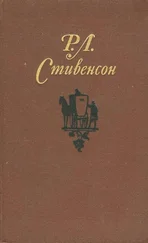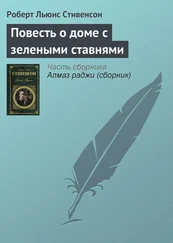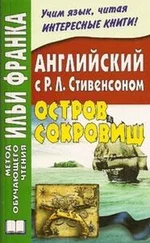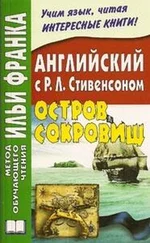Роберт Стивенсон - Memoir of Fleeming Jenkin
Здесь есть возможность читать онлайн «Роберт Стивенсон - Memoir of Fleeming Jenkin» — ознакомительный отрывок электронной книги совершенно бесплатно, а после прочтения отрывка купить полную версию. В некоторых случаях можно слушать аудио, скачать через торрент в формате fb2 и присутствует краткое содержание. Жанр: literature_19, foreign_antique, foreign_prose, Биографии и Мемуары, на английском языке. Описание произведения, (предисловие) а так же отзывы посетителей доступны на портале библиотеки ЛибКат.
- Название:Memoir of Fleeming Jenkin
- Автор:
- Жанр:
- Год:неизвестен
- ISBN:нет данных
- Рейтинг книги:3 / 5. Голосов: 1
-
Избранное:Добавить в избранное
- Отзывы:
-
Ваша оценка:
- 60
- 1
- 2
- 3
- 4
- 5
Memoir of Fleeming Jenkin: краткое содержание, описание и аннотация
Предлагаем к чтению аннотацию, описание, краткое содержание или предисловие (зависит от того, что написал сам автор книги «Memoir of Fleeming Jenkin»). Если вы не нашли необходимую информацию о книге — напишите в комментариях, мы постараемся отыскать её.
Memoir of Fleeming Jenkin — читать онлайн ознакомительный отрывок
Ниже представлен текст книги, разбитый по страницам. Система сохранения места последней прочитанной страницы, позволяет с удобством читать онлайн бесплатно книгу «Memoir of Fleeming Jenkin», без необходимости каждый раз заново искать на чём Вы остановились. Поставьте закладку, и сможете в любой момент перейти на страницу, на которой закончили чтение.
Интервал:
Закладка:
They had all the gift of enjoying life’s texture as it comes; they were all born optimists. The name of liberty was honoured in that family, its spirit also, but within stringent limits; and some of the foreign friends of Mrs. Jenkin were, as I have said, men distinguished on the Liberal side. Like Wordsworth, they beheld
France standing on the top of golden hours
And human nature seeming born again.
At once, by temper and belief, they were formed to find their element in such a decent and whiggish convulsion, spectacular in its course, moderate in its purpose. For them,
Bliss was it in that dawn to be alive,
But to be young was very heaven.
And I cannot but smile when I think that (again like Wordsworth) they should have so specially disliked the consequence.
It came upon them by surprise. Liberal friends of the precise right shade of colour had assured them, in Mrs. Turner’s drawing-room, that all was for the best; and they rose on January 23 without fear. About the middle of the day they heard the sound of musketry, and the next morning they were wakened by the cannonade. The French who had behaved so ‘splendidly,’ pausing, at the voice of Lamartine, just where judicious Liberals could have desired – the French, who had ‘no cupidity in their nature,’ were now about to play a variation on the theme rebellion. The Jenkins took refuge in the house of Mrs. Turner, the house of the false prophets, ‘Anna going with Mrs. Turner, that she might be prevented speaking English, Fleeming, Miss H. and I (it is the mother who writes) walking together. As we reached the Rue de Clichy, the report of the cannon sounded close to our ears and made our hearts sick, I assure you. The fighting was at the barrier Rochechouart, a few streets off. All Saturday and Sunday we were a prey to great alarm, there came so many reports that the insurgents were getting the upper hand. One could tell the state of affairs from the extreme quiet or the sudden hum in the street. When the news was bad, all the houses closed and the people disappeared; when better, the doors half opened and you heard the sound of men again. From the upper windows we could see each discharge from the Bastille – I mean the smoke rising – and also the flames and smoke from the Boulevard la Chapelle. We were four ladies, and only Fleeming by way of a man, and difficulty enough we had to keep him from joining the National Guards – his pride and spirit were both fired. You cannot picture to yourself the multitudes of soldiers, guards, and armed men of all sorts we watched – not close to the window, however, for such havoc had been made among them by the firing from the windows, that as the battalions marched by, they cried, “Fermez vos fenêtres!” and it was very painful to watch their looks of anxiety and suspicion as they marched by.’
‘The Revolution,’ writes Fleeming to Frank Scott, ‘was quite delightful: getting popped at and run at by horses, and giving sous for the wounded into little boxes guarded by the raggedest, picturesquest, delightfullest, sentinels; but the insurrection! ugh, I shudder to think at [ sic ] it.’ He found it ‘not a bit of fun sitting boxed up in the house four days almost.. I was the only gentleman to four ladies, and didn’t they keep me in order! I did not dare to show my face at a window, for fear of catching a stray ball or being forced to enter the National Guard; [for] they would have it I was a man full-grown, French, and every way fit to fight. And my mamma was as bad as any of them; she that told me I was a coward last time if I stayed in the house a quarter of an hour! But I drew, examined the pistols, of which I found lots with caps, powder, and ball, while sometimes murderous intentions of killing a dozen insurgents and dying violently overpowered by numbers…’ We may drop this sentence here: under the conduct of its boyish writer, it was to reach no legitimate end.
Four days of such a discipline had cured the family of Paris; the same year Fleeming was to write, in answer apparently to a question of Frank Scott’s, ‘I could find no national game in France but revolutions’; and the witticism was justified in their experience. On the first possible day, they applied for passports, and were advised to take the road to Geneva. It appears it was scarce safe to leave Paris for England. Charles Reade, with keen dramatic gusto, had just smuggled himself out of that city in the bottom of a cab. English gold had been found on the insurgents, the name of England was in evil odour; and it was thus – for strategic reasons, so to speak – that Fleeming found himself on the way to that Italy where he was to complete his education, and for which he cherished to the end a special kindness.
It was in Genoa they settled; partly for the sake of the captain, who might there find naval comrades; partly because of the Ruffinis, who had been friends of Mrs. Jenkin in their time of exile and were now considerable men at home; partly, in fine, with hopes that Fleeming might attend the University; in preparation for which he was put at once to school. It was the year of Novara; Mazzini was in Rome; the dry bones of Italy were moving; and for people of alert and liberal sympathies the time was inspiriting. What with exiles turned Ministers of State, universities thrown open to Protestants, Fleeming himself the first Protestant student in Genoa, and thus, as his mother writes, ‘a living instance of the progress of liberal ideas’ – it was little wonder if the enthusiastic young woman and the clever boy were heart and soul upon the side of Italy. It should not be forgotten that they were both on their first visit to that country; the mother still child enough ‘to be delighted when she saw real monks’; and both mother and son thrilling with the first sight of snowy Alps, the blue Mediterranean, and the crowded port and the palaces of Genoa. Nor was their zeal without knowledge. Ruffini, deputy for Genoa and soon to be head of the University, was at their side; and by means of him the family appear to have had access to much Italian society. To the end, Fleeming professed his admiration of the Piedmontese and his unalterable confidence in the future of Italy under their conduct; for Victor Emanuel, Cavour, the first La Marmora and Garibaldi, he had varying degrees of sympathy and praise: perhaps highest for the King, whose good sense and temper filled him with respect – perhaps least for Garibaldi, whom he loved but yet mistrusted.
But this is to look forward: these were the days not of Victor Emanuel but of Charles Albert; and it was on Charles Albert that mother and son had now fixed their eyes as on the sword-bearer of Italy. On Fleeming’s sixteenth birthday, they were, the mother writes, ‘in great anxiety for news from the army. You can have no idea what it is to live in a country where such a struggle is going on. The interest is one that absorbs all others. We eat, drink, and sleep to the noise of drums and musketry. You would enjoy and almost admire Fleeming’s enthusiasm and earnestness – and, courage, I may say – for we are among the small minority of English who side with the Italians. The other day, at dinner at the Consul’s, boy as he is, and in spite of my admonitions, Fleeming defended the Italian cause, and so well that he “tripped up the heels of his adversary” simply from being well-informed on the subject and honest. He is as true as steel, and for no one will he bend right or left… Do not fancy him a Bobadil,’ she adds, ‘he is only a very true, candid boy. I am so glad he remains in all respects but information a great child.’
If this letter is correctly dated, the cause was already lost and the King had already abdicated when these lines were written. No sooner did the news reach Genoa, than there began ‘tumultuous movements’; and the Jenkins’ received hints it would be wise to leave the city. But they had friends and interests; even the captain had English officers to keep him company, for Lord Hardwicke’s ship, the Vengeance , lay in port; and supposing the danger to be real, I cannot but suspect the whole family of a divided purpose, prudence being possibly weaker than curiosity. Stay, at least, they did, and thus rounded their experience of the revolutionary year. On Sunday, April 1, Fleeming and the captain went for a ramble beyond the walls, leaving Aunt Anna and Mrs. Jenkin to walk on the bastions with some friends. On the way back, this party turned aside to rest in the Church of the Madonna delle Grazie. ‘We had remarked,’ writes Mrs. Jenkin, ‘the entire absence of sentinels on the ramparts, and how the cannons were left in solitary state; and I had just remarked “How quiet everything is!” when suddenly we heard the drums begin to beat and distant shouts. Accustomed as we are to revolutions, we never thought of being frightened.’ For all that, they resumed their return home. On the way they saw men running and vociferating, but nothing to indicate a general disturbance, until, near the Duke’s palace, they came upon and passed a shouting mob dragging along with it three cannon. It had scarcely passed before they heard ‘a rushing sound’; one of the gentlemen thrust back the party of ladies under a shed, and the mob passed again. A fine-looking young man was in their hands; and Mrs. Jenkin saw him with his mouth open as if he sought to speak, saw him tossed from one to another like a ball, and then saw him no more. ‘He was dead a few instants after, but the crowd hid that terror from us. My knees shook under me and my sight left me.’ With this street tragedy, the curtain rose upon their second revolution.
Читать дальшеИнтервал:
Закладка:
Похожие книги на «Memoir of Fleeming Jenkin»
Представляем Вашему вниманию похожие книги на «Memoir of Fleeming Jenkin» списком для выбора. Мы отобрали схожую по названию и смыслу литературу в надежде предоставить читателям больше вариантов отыскать новые, интересные, ещё непрочитанные произведения.
Обсуждение, отзывы о книге «Memoir of Fleeming Jenkin» и просто собственные мнения читателей. Оставьте ваши комментарии, напишите, что Вы думаете о произведении, его смысле или главных героях. Укажите что конкретно понравилось, а что нет, и почему Вы так считаете.







